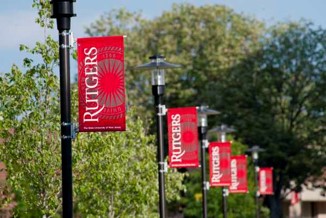About Us

The Center for Effective School Practices (CESP) is a practice-focused unit of the Graduate School of Education at Rutgers University dedicated to excellence and integrity in research and evaluation. Rutgers CESP regularly engages in and mediates collaborations among public and private school districts in the tri-state area, institutions of higher education, local, state, and federal government agencies, community organizations, and industry partners to generate and implement practitioner-relevant best-practices in education.
CESP is strongly committed to connecting a broad range of education stakeholders with the best available research evidence to inform sound education policy and practice decisions needed to support the delivery of quality education to all students. To this end, CESP supports active collaborative structures such as professional learning communities and researcher-practitioner partnerships, in addition to translating and disseminating evidence-based guidelines and delivering professional development opportunities. CESP is supported by a robust team of experienced researchers and evaluators with a strong commitment to building the capacity of educators and policymakers to develop and deliver high-quality evidence-based instruction, curriculum, programs, and policy initiatives with significant potential to improve learning.
Funded by the National Science Foundation, National Institutes of Health, and State and Federal Departments of Education, CESP develops and executes innovative and impactful projects on educational initiatives in addition to serving as internal and external evaluators on large-scale research projects. A current focus of CESP’s work is on scalable mechanisms for improving computer science education across the K-12 continuum. We work to build the capacity of educators through sustained, inquiry-driven computer science professional learning at the high school level and are implementing and assessing a technical assistance framework for the middle school level. We are also working as evaluators on a number of pre- and post-doctoral training initiatives and as research partners on an exploration of the use of research-evidence in policy ecosystems.
